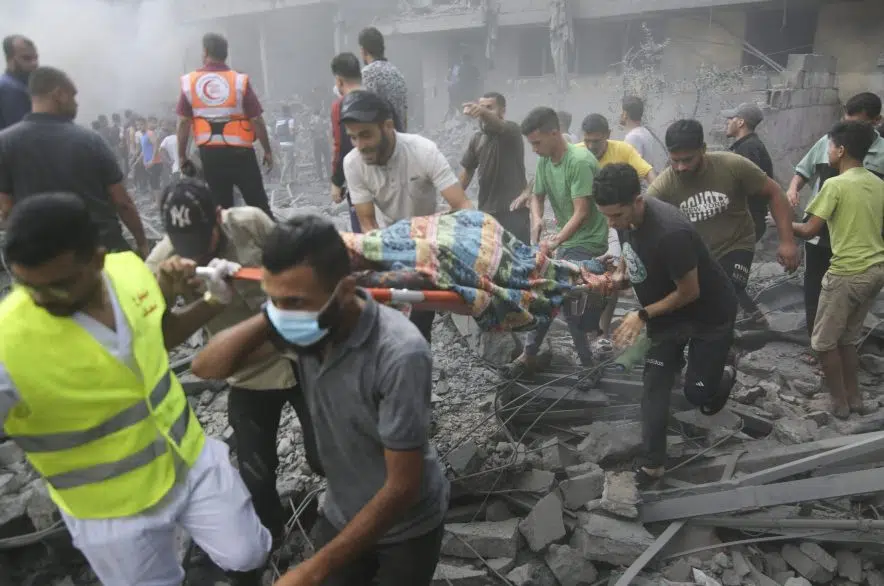Mahmoud Ismail had been dreaming of settling down in his home of Gaza, but amid a worsening humanitarian crisis, that dream looks unlikely to happen soon.
Ismail was born and raised in Gaza but now lives in Regina with his wife and three children.
However, most of his family is still in Gaza.
“I was there last summer with my family and it was a beautiful place to be and I saw the family,” Ismail said.
“I was hoping one day to go and settle down there for a bit and come back but what’s happening this time (is) Gaza is being destroyed.”
Ismail said his family had been forced out of their homes in Gaza during Israel’s extensive bombing campaign.
“One of the buildings my family was in (was) hit by an airstrike and had been demolished but luckily they already left,” Ismail said.
More than 13,000 people have been killed in Gaza since October and roughly 1.5 million people have been internally displaced according to the United Nations.
Ismail called it a genocide.
Ismail said he hasn’t been able to get in contact with his family for almost a month since Israel cut off electricity to the Gaza Strip.
Gaza has been under Israeli occupation since 2007. In October, Israel announced it would place Gaza under a “total” siege limiting the entry of food, medicine, fuel, water and electricity.
Ismail said the suffering of the Palestinians goes back 75 years to 1948, when the state of Israel was formed and more than 700,000 Palestinians were expelled from their homes.
“(This did not start) a month ago or 15 years ago,” Ismail said.
“As a Palestinian born and raised in Palestine, I became a refugee from Palestine inside Palestine. My parents came from Jaffa and they came to Gaza because the Israelis pushed them out as refugees and that’s what’s happening right now.”
Ismail said he’s been glued to the TV recently watching the news for updates about his homeland.
“Some babies, just newborns, they have died because there is no medical support,” he said.
Ismail also referenced watching news about medical operations being performed without anesthesia.
In addition to this, the World Health Organization has verified 152 attacks on health-care facilities in Gaza as well as 170 in the West Bank.
Although the images he’s seen are harrowing, Ismail has not given way to despair. He showed a photo of a Palestinian boy among the rubble smiling with a Palestinian flag.
“He’s just smiling. Regardless, God knows, I don’t know if (his) family is still alive but he’s saying, ‘I am here, I have a victory, I will rebuild it,’ ” Ismail said.
Premier Scott Moe
After an attack by militant group Hamas in October, the province announced it would donate $100,000 in emergency relief to Israel. A similar donation was made by the province for Ukraine in 2022 after the Russian invasion, which Saskatchewan Premier Scott Moe cited as precedent for provincial aid to a foreign country.
“We do discuss this as we increasingly find ourselves in an unrestful and uncertain world, unfortunately,” Moe said while explaining the decision. “We are very fortunate and blessed here. We have largesse, we have a safe place to live.”
Further explaining the rationale, the premier said Saskatchewan has global connections and as unrest grows throughout the world, the province would discuss the possibility of aid and would provide it in cases where it could.
When asked about aid to Gaza, he said the matter was being discussed in an ongoing fashion but did not give any timeline.
“It is very troubling for all of us,” he said. “The initial invasion of the terrorist Hamas group, but equally troubling I think as well with respect to some of the citizens that are very much being put in danger’s way due to that invasion of Israel.”











